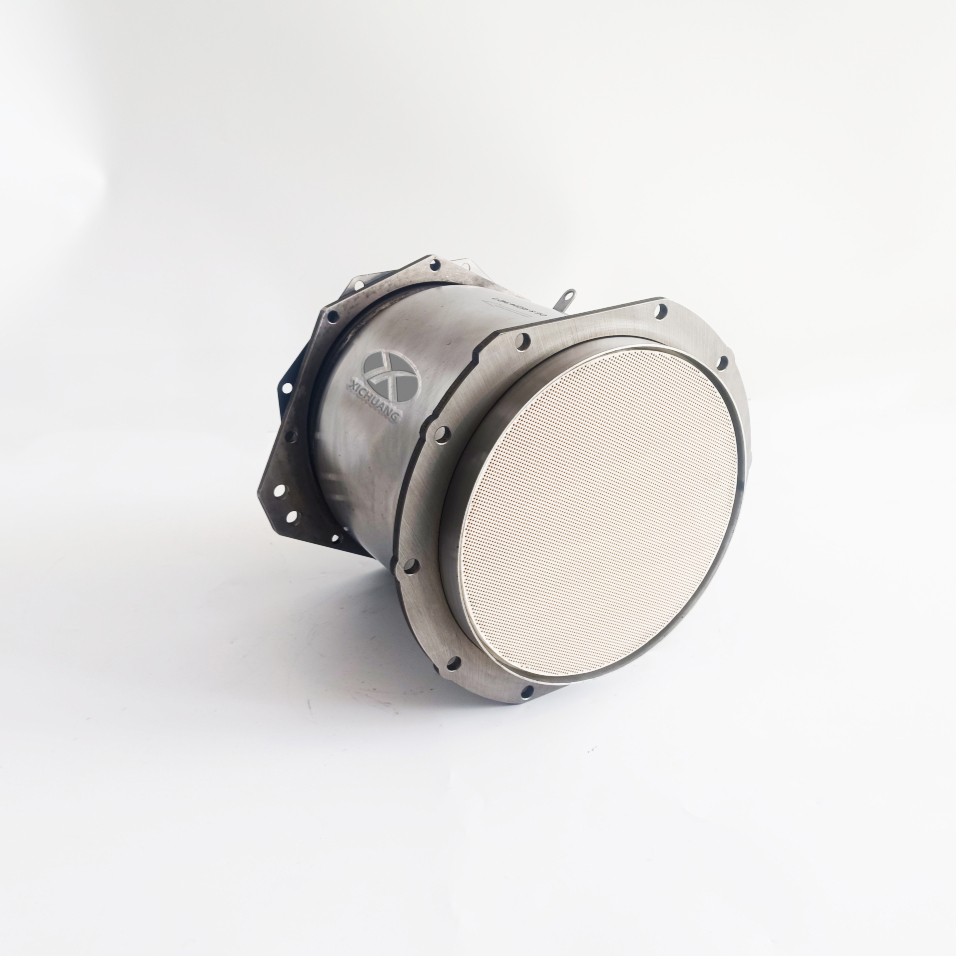Introduction
Diesel Particulate Filters (DPFs) are vital components in diesel engines, designed to trap and reduce particulate matter emissions. However, like any other part of your vehicle, Diesel Particulate Filters need regular maintenance to function properly. Ignoring the telltale signs of a clogged or failing DPF can lead to serious engine problems and costly repairs. In this blog, we’ll explore the critical signs that your DPF needs cleaning or replacement and provide practical tips to keep it in top condition. Whether you’re a seasoned diesel driver or a curious newbie, this guide will help you stay ahead of potential issues.
Understanding the Role of a Diesel Particulate Filter
What is a Diesel Particulate Filter (DPF)?
A DPF is an emissions control device designed to capture and store exhaust soot, thereby reducing the amount of particulate matter released into the atmosphere. Over time, the trapped soot is burned off during regeneration cycles, converting it into less harmful gases.
Why is DPF Maintenance Important?
Regular maintenance of the DPF is essential for:
- Ensuring compliance with environmental regulations.
- Maintaining optimal vehicle performance and fuel efficiency.
- Preventing costly repairs and engine damage.
Top Signs Your Diesel Particulate Filter Needs Attention
1. Dashboard Warning Lights
One of the most obvious signs that your DPF needs cleaning or replacement is the illumination of warning lights on your dashboard. These lights are triggered by the vehicle’s onboard diagnostic system, which monitors the condition of the DPF.
Common Warning Lights:
- DPF Light: Indicates that the filter is becoming clogged and requires regeneration.
- Check Engine Light: Can be triggered by various issues, including a clogged DPF.
- Exhaust System Warning Light: Specifically related to problems within the exhaust system, including the DPF.
2. Reduced Engine Performance
A clogged DPF can significantly affect your vehicle’s performance. You may notice:
- Loss of Power: Reduced acceleration and overall power output.
- Poor Fuel Economy: Increased fuel consumption due to restricted exhaust flow.
- Engine Stalling: In severe cases, the engine may stall or struggle to start.
3. Increased Exhaust Smoke
One of the primary functions of a DPF is to reduce visible exhaust smoke. If you notice an increase in dark, sooty exhaust smoke, it could be a sign that the DPF is not functioning correctly and needs attention.
4. Frequent Regeneration Cycles
Modern diesel vehicles are equipped with systems that periodically burn off the soot accumulated in the DPF. If you find that regeneration cycles are occurring more frequently than usual, it may indicate that the DPF is struggling to maintain its efficiency.
5. Unusual Engine Noises
A clogged DPF can cause increased backpressure in the exhaust system, leading to unusual engine noises such as:
- Hissing or Whistling: Caused by restricted exhaust flow.
- Rattling or Knocking: Due to increased engine strain.
6. Poor Throttle Response
If your vehicle is slow to respond when you press the accelerator, it could be due to a clogged DPF restricting the exhaust flow and affecting engine performance.
7. Failed Emissions Test
A clogged or malfunctioning DPF can result in higher emissions, causing your vehicle to fail an emissions test. Regular maintenance and timely cleaning or replacement of the DPF can help you avoid this issue.
Table: Common Signs of DPF Issues and Recommended Actions
| Sign | Description | Recommended Action |
|---|---|---|
| Dashboard Warning Lights | DPF, Check Engine, or Exhaust System warning lights | Inspect DPF, perform regeneration |
| Reduced Engine Performance | Loss of power, poor fuel economy, engine stalling | Clean or replace DPF, check for other issues |
| Increased Exhaust Smoke | Dark, sooty exhaust smoke | Clean or replace DPF |
| Frequent Regeneration Cycles | More frequent than usual regeneration cycles | Inspect DPF, ensure proper conditions for passive regeneration |
| Unusual Engine Noises | Hissing, whistling, rattling, or knocking noises | Inspect DPF, check exhaust system |
| Poor Throttle Response | Slow acceleration response | Clean or replace DPF |
| Failed Emissions Test | Higher emissions leading to test failure | Thoroughly clean or replace DPF |
Maintaining Your Diesel Particulate Filter
1. Regular Driving at Optimal Conditions
To promote passive regeneration, it’s important to regularly drive your vehicle at highway speeds. This allows the exhaust temperature to rise sufficiently to burn off accumulated soot.
2. Monitor DPF Status
Keep an eye on your vehicle’s dashboard for any warning lights or messages indicating DPF issues. Address these warnings promptly to avoid more serious problems.
3. Use High-Quality Fuel and Oil
High-quality diesel fuel and engine oil can help reduce the amount of particulate matter produced, thereby extending the life of your DPF and reducing the frequency of regeneration cycles.
4. Professional Cleaning and Inspection
Regular professional inspections and cleanings can help maintain the efficiency of your DPF. Professional cleaning methods, such as thermal or ultrasonic cleaning, can effectively remove soot and ash buildup.
5. Avoid Short Trips
Frequent short trips can prevent the DPF from reaching the necessary temperature for passive regeneration. Try to include longer drives in your routine to promote DPF health.
When to Replace Your Diesel Particulate Filter
1. Irreversible Clogging
If professional cleaning cannot restore the DPF to its full functionality, it may need to be replaced. This is often the case when the filter is heavily clogged with ash, which cannot be burned off during regeneration.
2. Physical Damage
Any physical damage to the DPF, such as cracks or breaks in the filter material, will necessitate replacement. Damaged DPFs cannot effectively trap particulate matter and must be replaced to ensure proper emissions control.
3. End of Service Life
Diesel Particulate Filters have a finite service life, typically ranging from 100,000 to 200,000 miles, depending on driving conditions and maintenance practices. Once the DPF reaches the end of its service life, it should be replaced to maintain compliance with emissions standards and ensure optimal vehicle performance.
Conclusion
Maintaining a healthy Diesel Particulate Filter is crucial for the performance and longevity of your diesel vehicle, as well as for environmental protection. By recognizing the signs that your Diesel Particulate Filters needs cleaning or replacement, you can take proactive steps to address issues before they lead to more serious problems. Regular maintenance, proper driving habits, and timely professional inspections will help you get the most out of your Diesel Particulate Filters and ensure that your vehicle runs smoothly and efficiently.

